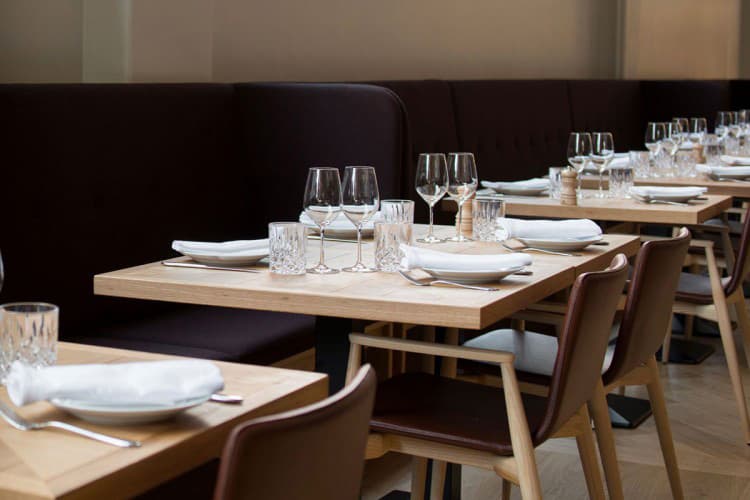In the vast tapestry of dining experiences, restaurant tables stand as the silent witnesses to countless stories, conversations, and flavors. They serve as the stage for culinary artistry to unfold, where meals are shared, memories are made, and connections are forged. But beyond their seemingly simple function lies a world of intricacies and nuances that contribute to the very essence of dining culture.

The Anatomy of Restaurant Tables: Form, Function, and Design
Form Follows Function: Crafting the Perfect Dining Surface
At the core of every restaurant table is a delicate balance between form and function. Each table is meticulously designed to accommodate the diverse needs of diners while seamlessly blending into the ambiance of the establishment. From sleek minimalist designs to rustic farmhouse aesthetics, restaurant tables come in a myriad of styles, each with its own unique charm.
Materials Matter: Exploring the Foundations of Tabletop Craftsmanship
The choice of materials plays a pivotal role in shaping the character and quality of restaurant tables. Whether crafted from rich mahogany, sturdy oak, or elegant marble, the selection of materials not only influences the table's aesthetic appeal but also its durability and longevity. Each material carries its own distinct personality, inviting diners to embark on a sensory journey through texture, color, and tactility.
Beyond the Surface: Understanding Table Construction and Stability
While the tabletop steals the spotlight, the foundation of restaurant tables lies in their construction and stability. From sturdy legs to reinforced joints, every component is carefully engineered to withstand the rigors of daily use. Whether supporting a decadent feast or a quiet tête-à-tête, a well-constructed table serves as a reliable anchor, ensuring a seamless dining experience for all.
The Role of Restaurant Tables in Dining Culture: A Nexus of Comfort and Connection
A Seat at the Table: Fostering Community and Togetherness
Restaurant tables transcend their physical form to become catalysts for human connection and camaraderie. They provide a gathering place where friends, families, and strangers alike can come together to break bread and share stories. In a world that often feels fragmented and disconnected, the simple act of sitting down at a table brings people closer, fostering bonds that endure beyond the confines of a meal.
Setting the Stage: Enhancing the Dining Atmosphere
The placement and arrangement of restaurant tables play a crucial role in shaping the overall ambiance of an establishment. Whether clustered in intimate corners or arranged in spacious open layouts, the positioning of tables influences the flow of energy and conversation within the space. From romantic dinners for two to lively gatherings of friends, the arrangement of tables sets the stage for memorable dining experiences.
Conclusion: Celebrating the Unsung Heroes of Dining
In the tapestry of dining culture, restaurant tables serve as the unsung heroes, anchoring every meal with their silent presence. They embody the spirit of hospitality, welcoming guests with open arms and inviting them to partake in the timeless ritual of sharing a meal. As we raise our glasses and savor the flavors of the moment, let us pause to appreciate the humble restaurant table—the cornerstone of culinary adventures and the heartbeat of dining experiences.